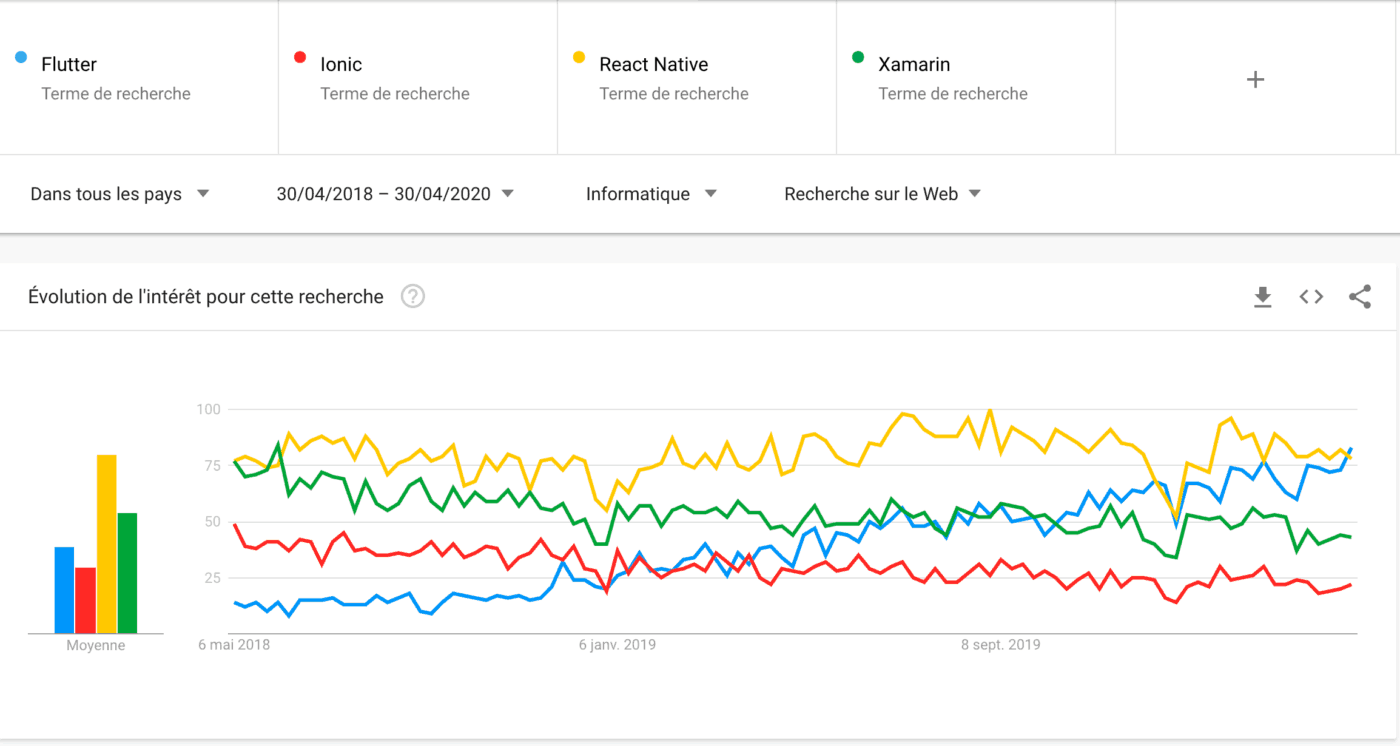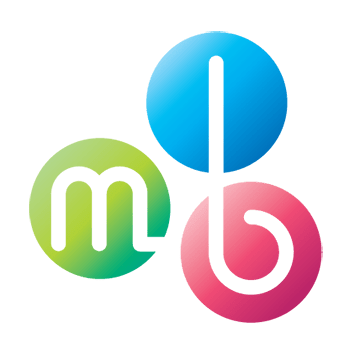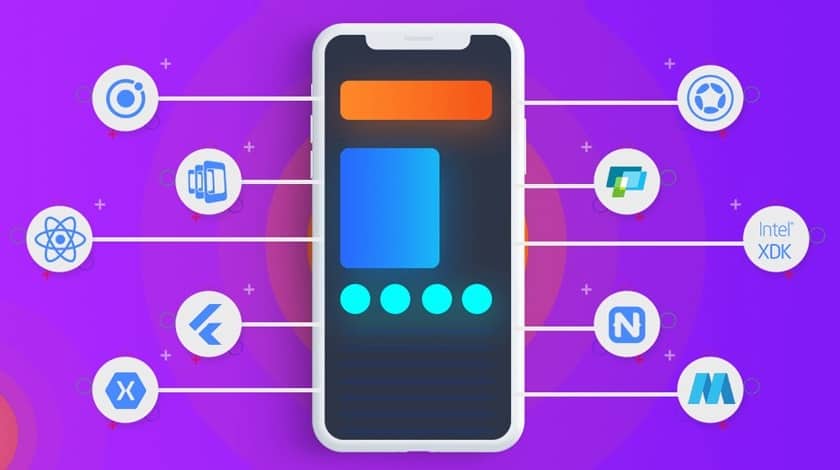The number of mobile users (smartphones and tablets) has grown significantly in recent years to reach 5,15 billion people in 2020. Of course, many companies are taking advantage of this trend.
In addition to their traditional websites, they are investing in the development of mobile apps to be closer to their customers by offering them a new way to connect with them or by extending their services.
But it’s one thing to develop a mobile app, it’s another to make it effective by using the right mobile technology. In this article, we present to you the best mobile frameworks to develop a mobile app in 2020.
Mobile development frameworks
There are two main categories of mobile development frameworks: native frameworks and cross-platform frameworks.
For mobile app development, choosing one or the other is a decisive choice.
Native framework
Native apps are developed according to the targeted mobile ecosystem (Android or IOS). They are developed with their own technologies and languages: Objective-c or Swift for iOS, Java or Kotlin for Android.
A native app is only compatible with a mobile device running the operating system that was used for its development. So it must be modified if you want to use it for the other platform.
A native framework is better for speed and compatibility and gives access to all the native features of the device, including the camera, GPS, or accelerometer. When it is installed, it offers users the possibility to take full advantage of their device through the GPS or the camera for example.
Each platform will therefore have its own app with its own code. This means native development can be quite expensive. The development also requires the collaboration of an Android and an iOS team. The costs of maintenance and development of the application are therefore higher and require greater expertise.
Cross-platform framework
Unlike native frameworks, cross-platform frameworks create apps compatible with multiple platforms. Almost all of these frameworks support both Android and iOS development.
The main cross-platform frameworks used in 2020 are Ionic, Flutter, and React Native.
Ionic
The Ionic cross-platform framework is developed with Apache Cordova and Angular. With this framework, the mobile apps developed can be used on more than one mobile platform and run on both Android and IOS. The design of these applications is basic and is created with HTML, Angular, or CSS.
As a multi-platform framework, Ionic allows companies to develop their mobile app with a small budget. With Ionic, a company doesn’t need to have several software developers to design a mobile app.
In addition to reducing costs, the Ionic framework saves time. it requires fewer resources, it’s faster to create, so the company will be able to make its application available to the public earlier and be more reactive in launching new features.
The real inconvenient of Ionic is its performance compared to native apps. If a company wants to design an app that requires advanced graphics capabilities, Ionic is certainly not the best choice. Indeed, as mentioned above, Ionic uses a WebView to display its content (which is built using web components) and this considerably limits performances.
Flutter
Google has developed this framework to offer users a beautiful and immersive interface. Flutter is entirely compiled in native ARM code, as opposed to mobile apps that use WebView. An app built with Flutter provides an experience comparable to native apps.
It uses Skia graphic engine, a popular open-source 2D graphics engine used mainly with Flutter. Development on this framework is done with open-source language Dart. An application built using Flutter is characterized by its speed, about 60fps. Some developers even reach 120fps.
However, in order to develop with this framework, developers will have to learn a new, and not really popular, coding language. And if you want to develop a game or an app that requires several device-specific functions, Flutter isn’t probably most suitable as it doesn’t make it easy to use native functions of devices.
React Native
Framework created by Facebook, React Native uses the programming language Javascript and is coupled with the mobile implementation of the ReactJS framework. It differs from hybrid apps by the fact that it can use devices native features.
Javascript is both flexible and quick to learn. It also allows great diversity in its writing and syntax. On top of that, the component orientation of the framework allows reusing different parts of the code without having to rewrite them.
React has the same advantages as Ionic and Flutter with better performance. The company only has to develop one app for Android and iOS. it means the company’s development team will be able to complete the project in less time, with a smaller budget, and have better performance.
Another factor that favors React Native development is the existence of many pre-designed tools that can be used directly for development. This way you don’t have to create them from scratch.
React Native is also the mobile development framework with the largest community. This is not to be neglected because a strong community will make it easier to solve any technical issues you may have!
Why choose React Native in 2020 ?
This development framework has been popular with developers for many years now. In 2020, more companies around the world are opting for React-Native apps for a number of reasons.
Mainly because with this mobile framework, you can develop an app at a lower cost and in record time. You save about 2 out of 3 days of work compared to developing 2 different native apps for Android and iOS. That’s because most of the code is shared between the different platforms. Only a few portions of native code may require adjustments for each operating system.
For all these reasons, React Native is one of the most widely used technologies in 2020, even if Flutter is growing fast.

Are you looking for a serious mobile app development agency that will help you develop the perfect app? We have the right agency for you, contact us today!


